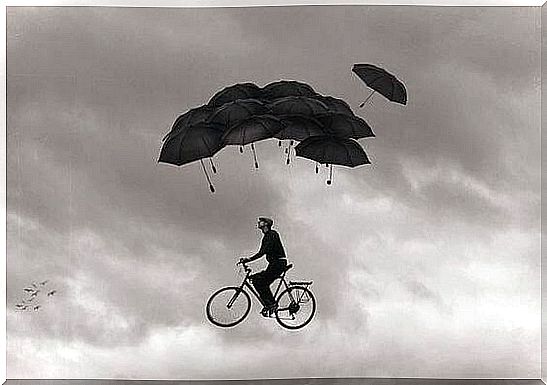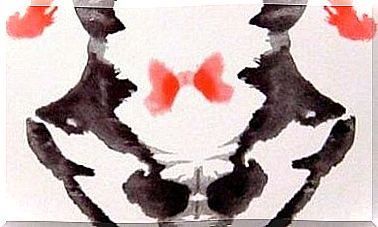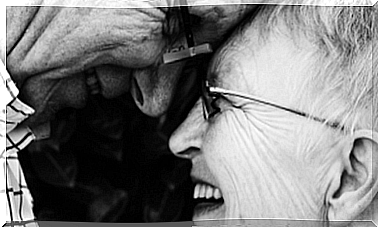The Dunning-Kruger Effect: Fictitious Inferiority And Superiority

The Dunning-Kruger effect indicates a distortion of thought that could be summarized as follows: stupid people consider themselves more intelligent than they really are, while the intelligent think themselves more stupid; it would be more correct to say: ignorant people are sure to know a lot and those who know a lot feel ignorant.
This curious effect was discovered by David Dunning and Justin Kruger, two American researchers from Cornell University. The first was a professor of psychology, who one day learned of a fact that puzzled him. It was a case of theft, committed by a 44-year-old subject named McArthur Wheeler. The news reported that he had robbed two banks, uncovered and in broad daylight, and then ended up under arrest within a couple of hours.
What caught Dunning’s attention was the thief’s explanation of the method employed. He claimed that he hadn’t used any masks, but had instead applied lemon juice to his face, expecting this to make him invisible to security cameras.
Why had he believed such idiocy? Well, because some of his friends had talked to him about this “trick” and he had checked it: he had applied lemon juice to his face and he himself had taken a photograph, to prove that his face would not appear in the photo . He actually went this way, but only because with the lemon in his eyes he hadn’t been able to frame himself in the face, instead aiming for the ceiling. “How can anyone be so stupid?” David Dunning then wondered.
The Dunning-Kruger experiment
After mulling over the thief’s conduct for a long time, Dunning came to ask himself a question that would serve as a hypothesis for his subsequent work: “Could it be that an incompetent is not aware of his own incompetence?” A question that might sound like a tongue twister, but it certainly makes sense.

It was then that he proposed to his best disciple, the young Justin Kruger, to carry out a formal research on this question. They then gathered a group of volunteers to perform an experiment. Each participant was asked how good they considered themselves in three different areas: grammar, logical reasoning, and humor. Subsequently they carried out a test to evaluate their real competence in these areas.
The results of the experiment confirmed what Dunning and Kruger already suspected. The subjects who had defined themselves as “very competent” in each area, in the tests had then obtained the worst evaluations. Conversely, those who initially underestimated themselves were the best.
In everyday life, it is very common to see people speaking with apparent authority about subjects they know very superficially. At the same time, it is customary for true experts not to be too categorical in their statements, since they are aware of how vast the knowledge is and how difficult it is to prove something with absolute certainty.
Analysis of the Dunning-Kruger Effect
Those responsible for this study not only noted the presence of this cognitive bias, but also that the more incompetent people tended to underestimate the more competent ones. They showed much more confidence and had a far greater sense of self-sufficiency, despite their own ignorance or perhaps for that very reason.

After carrying out the experiment, the researchers came to the four conclusions that define the Dunning-Kruger effect:
- People show themselves unable to recognize their own incompetence.
- They tend not to be able to recognize the competence of other people.
- They are not able to become aware of how incompetent they are in a given area.
- If they are trained to increase their competence, they will be able to recognize and accept how incompetent they were previously.
Once the distortion effect present in these subjects was established, the answer to why such a phenomenon occurs was still lacking. Dunning and Kruger established that cognitive bias occurs because the skills needed to do something well are the same as those needed to assess the job itself. In other words, how can you realize that you are doing something wrong if you are not even aware of the correct way to do it?

There are also high-ranking individuals among those with this cognitive bias. In this case, the researchers determined that there was a perception error known as “false consensus”, which is that people tend to overestimate how much their opinions agree with those of others.
Surely you have sometimes found yourself in a situation where two people get tangled up in an argument and in the end, to resolve the matter, they decide to rely on a third person, external to the dispute and whom both parties a priori consider neutral. . Here the false consensus would act when each of the two parties is convinced that the impartial observer will agree with her.
Something similar happens with people who hold high positions in a business. It is so easy for these individuals to perform their duties that they see no reason to suspect that most people cannot do it as well as they do.









